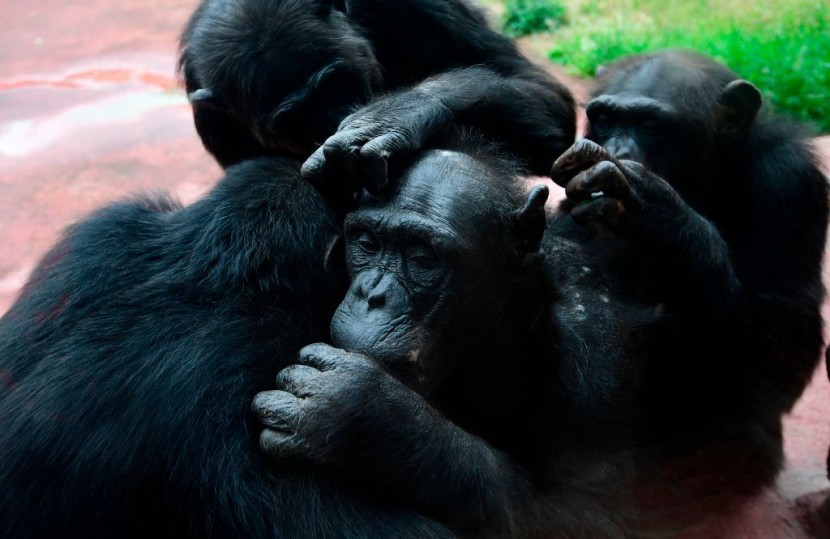
Researchers have found that chimpanzees have shown a certain level of empathy towards each other after they were observed catching insects and using them as makeshift medicine on open wounds of other chimps.
Currently, there is an ongoing study that involved 45 chimpanzees located in Loango National Park in Gabon. The environment is the first-ever documentation via video footage of such a "healing" behavior among the animals. The research team from Osnabruck University in Germany and the Ozouga Chimpanzee Project were responsible for overlooking the study.
Chimpanzee Self-Medication
Researchers published the study on Feb. 7, 2022, in the journal Current Biology, with a volunteer at the Ozouga Chimpanzee Project, Alessandra Mascaro explaining the situation. During a journal news release, the volunteer said that one of the chimps, named Suzee, could be seen looking at the foot of her son before catching an insect flying around.
In a university news release, Cognitive Biologist and project co-leader Simone Pika explained that self-medication is an act where individuals use plant parts or non-nutritional substances to fight against pathogens or parasites. They said that the process has been observed across multiple animal species including insects, reptiles, birds, and mammals, as per U.S. News.
Researchers involved in the study have witnessed multiple instances of the chimps applying medication to other members of their species. Primatologist Tobias Deschner, who leads the project, said the goal of the team was to study the relationships and interactions between the creatures and how they hunt, use tools, communicate, and flex their cognitive skills.
Other animals who are known to self-medicate against parasites and illnesses are bears, elephants, and bees. Furthermore, chimpanzees and bonobos, the two closest living relatives of human beings, swallow leaves of plants with anthelmintic (antiparasitic) properties. They are also known to chew bitter leaves that contain chemical properties to kill intestinal parasites.
CNN reported that the recent video footage is the first recording and documentation of such an act of using other animal matter, such as insects, to open wounds. Pika noted that they already knew chimps ate insects but were unaware that the creatures also used them to treat wounds.
Empathy for Others
However, researchers were unable to identify the insects that the chimpanzees used to treat the wounds and how they helped them recover. But they observed that the insects were small flying creatures and dark in color. The chimps were also observed crushing the insects with their lips before applying them to open wounds.
There were three main instances where researchers observed the act of supposed empathy; one was when an adult female, named Carol, was grooming around a flesh wound on the leg of an adult male named Littlegrey. She was seen grabbing an insect and giving it to the male, who then crushed it with his lips and applied it to his wound.
Carol was later observed with another adult male when they were moving the insect around Littlegrey's open wound. A third adult male approached the group who took the insect out of Littlegrey's wound, crushed it with his lips, and reapplied it to the wounded adult male's leg, the New York Times reported.
Related Article:
© 2025 HNGN, All rights reserved. Do not reproduce without permission.








